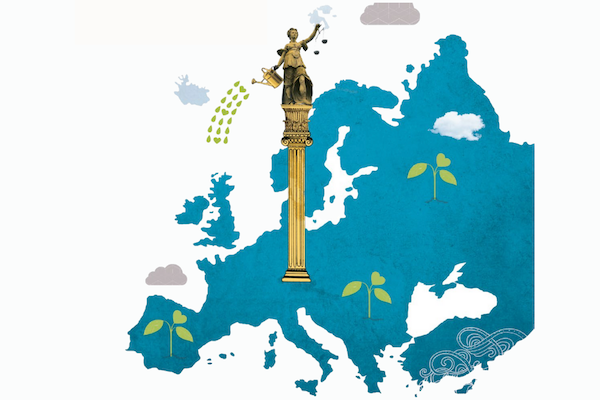
Threats to civil society organisations intensified by pandemic
September 22, 2021
Funding appeal launches to restart IFC and unite the global fundraising community
October 12, 2021New research commissioned by Dafne and EFC and published in a new report, maps the regulatory environment for fundraising across Europe, underlining the need for a single market for philanthropy and modernisation of the legal framework around foundations.
The 2021 Comparative Highlights of Foundation Laws report presents an overview of the legal and fiscal regulation of foundations and philanthropy across 40 nations. It finds that the current laws are failing to keep up with the evolving world of philanthropy where foundations wish to engage in impact investing and other entrepreneurial approaches to funding, offering not only grants but the ability to make loans to social businesses, and other mission-related investments.
Other findings include that overregulation can be an issue, with public-benefit foundations often lumped together with other entities and subjected to increased reporting requirements amid a backdrop of intensifying international EU and national regulation designed to prevent money laundering, terrorism financing and tax evasion. It notes that self-regulation, codes of conduct and quality labels can be effective approaches towards internal and external governance alongside state supervision.
The report – a Philanthropy Advocacy initiative – recognises that some countries have become more flexible when it comes to requirements for foundations’ capital, but that barriers remain for cross-border philanthropy.
Hanna Surmatz, legal expert and co-lead of the Philanthropy Advocacy initiative, which is led by Dafne and EFC, says:
“While many governments have introduced tax incentives to stimulate philanthropic activity, an enabling environment goes beyond tax incentives and includes the freedom to set up a public-benefit organisation, as well as the freedom of foundations and donors to operate without undue restrictions, either domestically or across borders”
The study shows that despite trends towards more integration, old and new barriers to cross-border philanthropic action exist and a European single market for philanthropy and the public good is not yet a reality.
Helmut Anheier, Senior Professor of Sociology at Hertie School and author of numerous books on philanthropy, states in the Foreword of the publication:
“More and more foundations work across national borders, and in particular their potential in the many hundreds of EU cross-border regions seems immense. In this context, there is an urgent need for a common European framework, especially in terms of cross-border tax treatment and programme activities.”
A comprehensive study, the 2021 Comparative Highlights of Foundation Laws explores a wide range of legislative and related issues. This includes what legal requirements exist to establish a foundation, whether foundations can pursue only public-benefit or also private purposes, what governance requirements are set out, what forms of tax incentives exist to encourage philanthropic organisations and giving and how this differs across the continent, as well as what impact anti-money laundering and anti-terrorism legislation has on the European philanthropy sector.
Read more or download the report on the Philanthropy Advocacy website.
Image credit: Dafne & EFC




